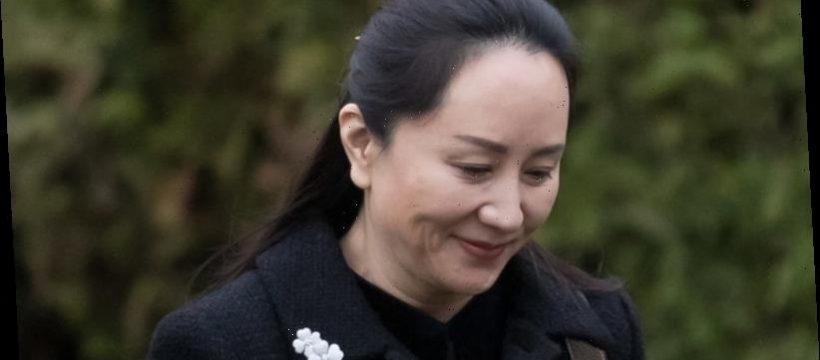Vancouver, British Columbia: The first stage of an extradition hearing for a senior executive of Chinese telecom giant Huawei begins Monday in a Vancouver courtroom, a case that has infuriated Beijing, caused a diplomatic uproar between China and Canada and complicated trade talks between China and the United States.
Meng Wanzhou, chief financial officer of Huawei Technologies Co., leaves her home to attend Supreme Court for an extradition hearing in Vancouver, British Columbia, Canada.Credit:Bloomberg
Canada's arrest of chief financial officer Meng Wanzhou, the daughter of Huawei's legendary founder, in late 2018 at America's request shocked Beijing.
Huawei represents China's progress in becoming a technological power and has been a subject of US security concerns for years. Beijing views Meng's case as an attempt to contain China's rise.
China's foreign ministry complained on Monday the United States and Canada were violating Meng's rights and called for her release.
"It is completely a serious political incident," said a ministry spokesman, Geng Shuang. He urged Canada to "correct mistakes with concrete actions, release Ms Meng Wanzhou and let her return safely as soon as possible."
Washington accuses Huawei of using a Hong Kong shell company to sell equipment to Iran in violation of U.S. sanctions. It says Meng, 47, committed fraud by misleading the HSBC bank about the company's business dealings in Iran.
Meng, who is free on bail and living in one of the two Vancouver mansions she owns, left her home dressed in a black dress and black coat in a black SUV surrounded by security. She waved at reporters as she arrived at court.
Meng denies the allegations. Her defence team says comments by President Donald Trump suggest the case against her is politically motivated.
Meng was detained in December 2018 in Vancouver as she was changing flights – on the same day that Trump and Chinese President Xi Jinping met for trade talks.
Meng Wanzhou, chief financial officer of Huawei Technologies, arrives at the Supreme Court in Vancouver, British Columbia, Canada.Credit:Bloomberg
James Lewis at the Washington-based Centre for Strategic and International Studies said the US wanted to send a message with Meng's arrest. There is good evidence that Huawei wilfully violated sanctions, he said.
"The message that you are no longer invulnerable has been sent to Chinese executives," Lewis said.
"No one has held China accountable. They steal technology, they violate their WTO commitments and the old line is, 'Oh, they are a developing economy, who cares.' When you are the second-largest economy in the world you can't do that anymore."
The initial stage of Meng's extradition hearing will focus on whether Meng's alleged crimes are crimes both in the United States and Canada. Her lawyers filed a a motion Friday arguing that Meng's case is really about US sanctions against Iran, not a fraud case. Canada does not have similar sanctions on Iran.
The second phase, scheduled for June, will consider defence allegations that Canada Border Services, the Royal Canadian Mounted Police and the FBI violated her rights while collecting evidence before she was actually arrested.
The extradition case could take years to resolve if there are appeals. Nearly 90 per cent of those arrested in Canada on extradition requests from the US were surrendered to US authorities between 2008 and 2018.
In apparent retaliation for Meng's arrest, China detained former Canadian diplomat Michael Kovrig and Canadian entrepreneur Michael Spavor. The two men have been denied access to lawyers and family and are being held in prison cells where the lights are kept on 24-hours-a-day. "That's mafia-style pressure," Lewis said.
AP
Source: Read Full Article


